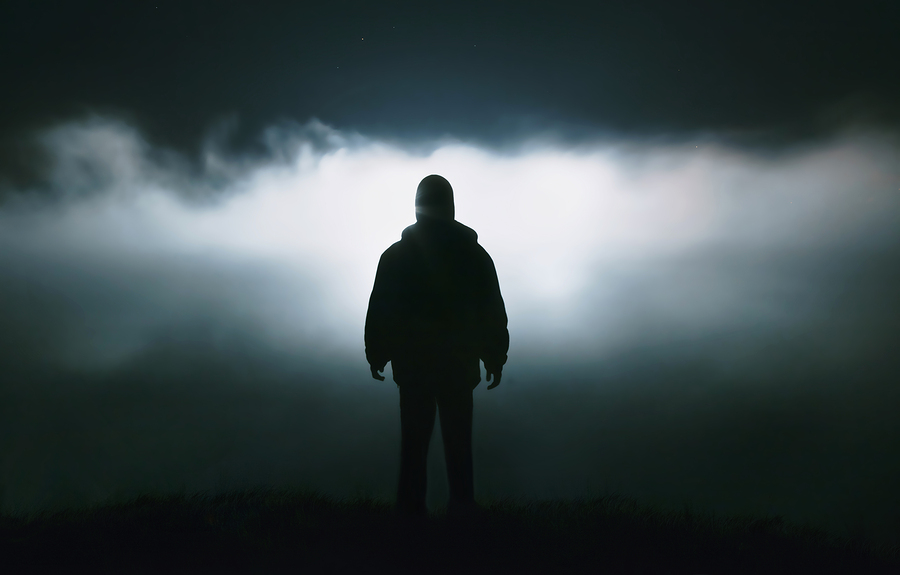 A Canadian landmark court ruling on January 17, 2018 recognized the importance of the mental (and physical) wellbeing of federal prison inmates. How? By ruling to prohibit solitary confinement in Canada. And the impact of the decision is now being felt in courtrooms and prisons throughout the United States.
A Canadian landmark court ruling on January 17, 2018 recognized the importance of the mental (and physical) wellbeing of federal prison inmates. How? By ruling to prohibit solitary confinement in Canada. And the impact of the decision is now being felt in courtrooms and prisons throughout the United States.
Writer Jennifer McNulty, in her article last week for the University of California, Santa Cruz (UCSC), explained that in presiding over the court decision, “a Canadian judge relied heavily on expert testimony by [American] psychology professor Craig Haney”.
Haney, currently a UCSC Distinguished Professor of Psychology, is noted for conducting, with colleague Dr. Philip Zimbardo, The Stanford Prison Experiment, when studying at Stanford University in 1971. The results of the experiment served as the foundation for Haney’s immersion into the psychological effects of imprisonment and solitary confinement. He remains an advocate for reform and for improved humanity in the prison system.
Haney was “involved in the nine-week trial that took place last summer in Vancouver [Canada], testifying about the effects of segregation on mental health,” McNulty wrote. "It is a stunning ruling. It could not be more decisive or far reaching," she quoted Haney.
"This decision will help alleviate a great deal of suffering in Canadian prisons," said Haney. "It is part of a worldwide movement to address this cruel practice. I am grateful my work could be part of it.”
With specific reference to the extensive testimony Haney provided, wrote McNulty, “in his ruling, [Canadian] Justice Leask [concluded] that solitary confinement poses ‘significant risk of serious psychological harm’ to inmates, increasing the risk of mental pain and suffering, self-harm, and suicide”.
Based on decades of investigation and scientific study, Haney’s testimony provided evidence of “the impact of solitary confinement on inmates, who are forced to adapt in socially pathological ways,” McNulty quoted Haney. “They gradually change their patterns of thinking, acting, and feeling to cope.”
According to Haney, the psychological effects of solitary confinement are numerous, “including anxiety, withdrawal, hypersensitivity, cognitive dysfunction, hallucination, aggression and rage, paranoia, self-mutilation, and hopelessness.” In addition, the resulting effects of exposure to confinement are made worse if the inmate already suffers from a mental illness when incarcerated.
McNulty wrote that according to Canada’s Justice Leask, “inmates subjected to solitary confinement are at risk of becoming more dangerous within the walls of an institution, as well as in the community outside following their release.” The goal then, Leask said, is for Canada’s correctional system to “invest in . . . a new mindset”.
Haney has previously testified before a U.S. Senate subcommittee on the “harmfulness of segregation”. Among scientific professionals and organizations including the American Psychiatric Association and the American Psychological Association, he said, “there is a growing consensus to restrict or eliminate its use among correctional organizations, human rights groups, religious groups, and mental and medical health associations.”
In some instances in the United States, solitary confinement has been banned “for certain vulnerable populations like juveniles, the mentally ill, and pregnant women and limiting its use for others," Haney added.
While the U.S. has not yet established a sweeping, national elimination of the practice, Haney explained that he has seen a growing trend. McNulty quoted him saying: ‘“Here it's on a case-by-case or state-by-state basis,’ he said, noting that Colorado, Washington, Maine, Mississippi, and California are among the states that have limited or eliminated solitary confinement.”
Haney was among several scientific professionals who collaborated with the U.S. Justice Department during the last few years of Obama’s presidency. Together they established and initiated new limitations on federal prison use of isolation.
In a 2016 opinion piece for The Washington Post, Barack Obama discussed the work of his administration to address the problem of solitary confinement in its prisons. “It has been linked to depression, alienation, withdrawal, a reduced ability to interact with others and the potential for violent behavior,” he wrote. "Some studies indicate that it can worsen existing mental illnesses and even trigger new ones.”
In an article published in the American Psychological Association’s magazine, Monitor on Psychology, writer Kirsten Weir explained the two types of solitary confinement practiced by U.S. prisons. One type, used for only a “specified period of time”, is called disciplinary segregation and is used for inmates who break prison rules. “Steal a cellmate's radio, for instance, and you might be in solitary for a week or two,” Weir wrote.
A second form of confinement, administrative segregation, “is used when prisoners are deemed a risk to the safety of other inmates or prison staff,” Weir explained. “Prisoners in administrative segregation are placed into isolation units for months or years.”
Based on research and the recommendations from the U.S. Justice Department, Obama’s goal was to learn from examples of the positive results seen by some U.S. states already limiting or eliminating such confinements.
“The United States is a nation of second chances, but the experience of solitary confinement too often undercuts that second chance,” Obama wrote. “Those who do make it out often have trouble holding down jobs, reuniting with family and becoming productive members of society.”
References
McNulty, J., University of California (Santa Cruz). Canada’s landmark ruling against solitary confinement. https://www.universityofcalifornia.edu/news/canadas-landmark-ruling-against-solitary-confinement
Mulgrew, I., (January 17, 2018). The Vancouver Sun. Canada’s solitary confinement law unconstitutional, B.C. Supreme Court rules. http://vancouversun.com/news/national/canadas-solitary-confinement-law-unconstitutional-b-c-supreme-court-rules
Obama, B., (January 25, 2016). The Washington Post. Barack Obama: Why we must rethink solitary confinement. https://www.washingtonpost.com/opinions/barack-obama-why-we-must-rethink-solitary-confinement/2016/01/25/29a361f2-c384-11e5-8965-0607e0e265ce_story.html?utm_term=.1a291105b845
Weir, K., (May 2012). American Psychological Association: Monitor on Psychology. Alone, in ‘the hole’. http://www.apa.org/monitor/2012/05/solitary.aspx